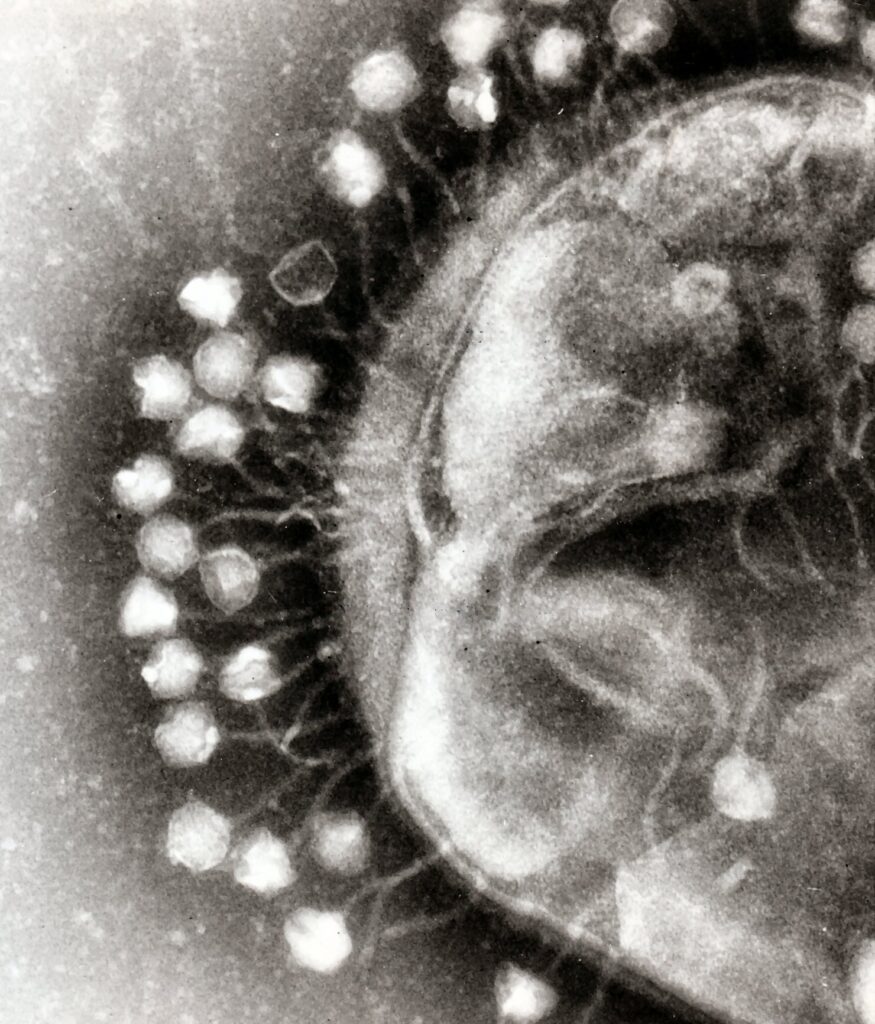Belgian hub for the world’s phage-based solutions
Nestled in the heart of Europe, the Belgian Phage Valley is a hotbed of innovation and cutting-edge research that is transforming the way we approach human and animal health, food and crop protection.
DISCOVER MORE JOIN USThe Belgian Phage Valley
At the forefront of bacteriophage research
Phages , also known as bacteriophages, are viruses that infect bacteria and can kill harmful bacterial strains without harming human or animal cells. They offer a promising solution to the global antimicrobial resistance crisis, which poses a significant threat to human health. In addition, phages have the potential to enhance food security and promote sustainable agriculture by protecting crops from harmful bacteria and reducing foodborne illnesses. Moreover, phages play a crucial role in promoting the concept of “one health“, recognizing that human, animal, and environmental health are interconnected.
Phage-based solutions have the potential to benefit all three areas by reducing the use of harmful chemical pesticides and antibiotics, promoting healthy ecosystems, and preventing the spread of antibiotic-resistant bacteria. The Phage Valley is at the forefront of research, with scientists and innovators working to develop novel phage-based and phage-derived therapies, diagnostic tools, and biocontrol agents. As the demand for sustainable and effective antimicrobial solutions grows, the Phage Valley is well-positioned to lead the way in addressing some of the world’s most pressing health and food security challenges.
The Belgian triple helix
Successful collaboration between academia, industry, and government
The Belgian Phage Valley embodies a triple helix in which academia, industry and government join forces with a shared mission. That mission is to address the urgent challenges of antimicrobial resistance, sustainable food and crop protection and animal health.
DISCOVERNews

Global phage therapy study shows 77% success rate

Bacteria use one alarm to detect two phage invaders.

History
Belgian researchers inspiring the field
Belgium has a rich history in bacteriophage research, with some of the pioneers of this field hailing from this very country. Richard Bruynoghe, Andre Gratia, and René Appelmans are among the luminaries who made significant contributions to the understanding of bacteriophages and their potential applications. Today, their legacy lives on in the work being done here in the Phage Valley, where we continue to push the boundaries of what is possible with phage-based solutions.
READ MORE